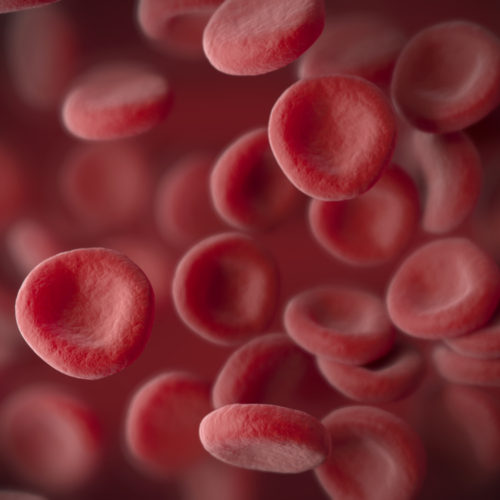This post was originally published on this site Adding the androgen receptor inhibitor darolutamide to androgen deprivation therapy (ADT) extends by 22 months the time men with castration-resistant prostate cancer live without metastasis, without increasing the incidence of adverse events, results from a Phase 3 trial show. The treatment also extended survival, time to pain progression, time until chemotherapy…
Author: Chris
FDA Raises Concerns on Safety, Tolerability of Potential Myeloma Therapy Selinexor
This post was originally published on this site The U.S. Food and Drug Administration has raised concerns in its newly released briefing materials over the safety and tolerability of Karyopharm Therapeutics‘ lead compound selinexor, creating a potential stumbling block on its path to approval for heavily treated multiple myeloma. Selinexor is an oral inhibitor of the XPO1 protein that prevents tumor…
Split Dosing of Darzalex Over Consecutive Days Approved by FDA for Multiple Myeloma Patients
This post was originally published on this site The U.S. Food and Drug Administration has approved a new dosing regimen for the multiple myeloma treatment Darzalex (daratumumab), allowing doctors to split the first infusion over two consecutive days. The approval is based on data from the EQUULEUS Phase 1b trial (NCT01998971), where the split dosing lead to similar safety…
$75M Gift to Establish Center for Blood Cancers at NYU Langone Health Center
This post was originally published on this site Owing to an anonymous $75 million gift, New York University (NYU) Langone Health and its Laura and Isaac Perlmutter Cancer Center will establish a Center for Blood Cancers. The center is expected to house a new, state-of-the-art program for multiple myeloma, complementing its current blood malignancy programs.…
Physician Stephen J. Forman Receives Top Honors for Research on Bone Marrow Transplantation
This post was originally published on this site Stephen J. Forman, MD, a physician and researcher in bone marrow transplantation and disorders such as lymphoma, is racking up some accolades. Forman will receive the 2019 DKMS Mechtild Harf Science Award on March 25 in Frankfurt, Germany, for his work in cancer research as the head of City…
The Thing with Feathers: Holding On to Hope for a Cancer Cure
This post was originally published on this site My daughter’s high school English class is reading a poem by Emily Dickinson. It begins with: “’Hope’ is the thing with feathers.” I read the poem in high school, too. I’ll be honest, even with all of the English courses I took, I never fully understood what…
Breast, Ovarian Cancer Therapies Induce Malignant Pleural Mesothelioma Cell Death, Study Shows
This post was originally published on this site Tesaro (niraparib) and Lymparza (olaparib) — both PARP1 inhibitors approved by the U.S. Food and Drug Administration to treat breast and ovarian cancer patients — also kill malignant pleural mesothelioma (MPM) cells, a new in vitro study finds. The study, “Synthetic lethality in malignant pleural mesothelioma with PARP1 inhibition,”…
Phase 3 Keytruda Trial Fails Primary Objectives in Liver Cancer Patients Who Received Prior Nexavar
This post was originally published on this site Immune checkpoint inhibitor Keytruda (pembrolizumab) did not significantly improve the survival outcomes of previously treated hepatocellular carcinoma patients on best supportive care, results from a Phase 3 trial show. While a trend was seen toward extended survival and delayed disease progression or death, the results did not…
FDA Approves Under-the-skin Formulation of Herceptin for Certain Breast Cancers
This post was originally published on this site The U.S. Food and Drug Administration (FDA) has approved an under-the-skin formulation of Genentech‘s breast cancer treatment Herceptin (trastuzumab), called Herceptin Hylecta. Also by Genentech, the treatment consists of a combination of trastumuzab and recombinant human hyaluronidase PH20, a protein that helps deliver the antibody under the skin. “Over the past…
Mutation Burden and PD-L1 Levels Can Help Predict Patient’s Response to Opdivo, Study Finds
This post was originally published on this site Genetic characterization and the detection of PD-1 ligand protein (PD-L1) levels in non-small cell lung cancers (NSCLC) can help oncologists identify those who may benefit the most from Opdivo (nivolumab) as a first line of treatment before starting therapy, according to a Phase 3 clinical trial. The results…











